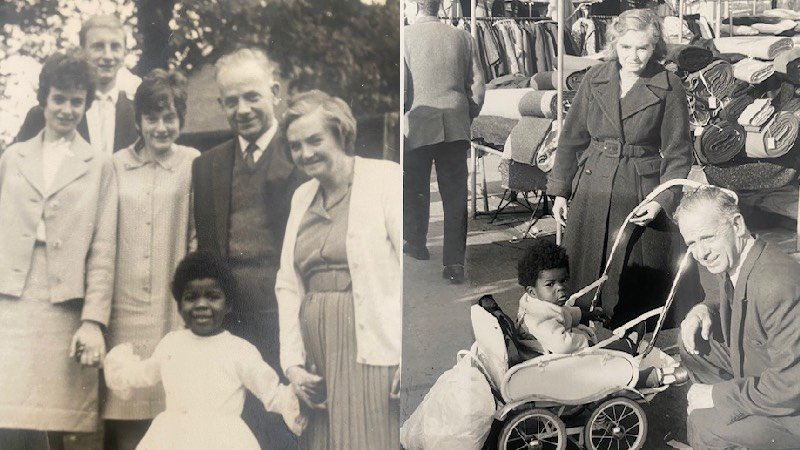‘I kept a lot of my feelings hidden’: documentary on privately fostered Nigerian children to premiere
A documentary director is shedding light on the untold story of 70,000 West African children who were fostered by white Britons in the 1950s.
Andy Mundy Castle, 43, who grew up in Coldharbour Lane, Brixton, has been working on White Nanny Black Child for the past five years.
Mr Castle said the 78-min feature documentary which premieres on October 3, attempts to reframe the narrative around immigration, taking a closer look at those who have been forced to uproot their lives.
He said: “I knew this was a story that had to be told.”
In White Nanny Black Child, a group of nine adults share their experiences of growing up as children of black Nigerian immigrants who were fostered by white British families.
Gloria Dixon, 59, from Croydon, features in the documentary.
Ms Dixon was fostered with a family in Margate when she was two-years-old and adopted by the same family when she was four.

She said: “My biological mother from Nigeria came here to study to be a nurse.
“In those days kids were privately fostered all the time – it was legal.”
In 1968, The Times newspaper reported that up to 5,000 West African children were privately fostered in Britain each year – in a phenomenon known informally as ‘farming’.
Many of the children were born to students, who made up a large portion of the UK’s international student population after the Ghanaian and Nigerian independence in 1957 and 1960.

Ms Dixon said: “There weren’t many black people in Margate apart from on bank holidays or at the weekend in summer.
“I moved straight to Peckham at 18 and mainly had friends of Caribbean decent and a few white friends.
“It was easy to be around, I understood the language and the clubs and just all the people being together.”
Ms Dixon had some issues growing up in a white family.
She said: “I kept a lot of my feelings hidden. I wanted to be the same as the other girls at school with the little yellow pigtails.
“For a while I didn’t really like black people or myself. I had big lips and a wider nose and I used to sniff my nose in and suck in my lips in pictures.
“But when I came to London I couldn’t walk down the street in without people complimenting me about things I used to feel insecure about.
“In South London I found out it was cool to be black – my foundations really come from there.”
Ms Dixon said that being involved in White Nanny Black Child has helped her understand her childhood.
She said: “I used to think, ‘Why didn’t my mum want me?’.
“But then I started meeting other people with a similar experience and learning about Nigerian independence and understanding their reasons for immigration.
“I have more compassion for my mum now. It must have been so hard for her and she trusted these people with her child.”
Ms Dixon got back in touch with her Nigerian family when she was older and is still close with her adoptive family and her friends from Margate.
She said: “There was a lot of love in that family.
“People think this might be a gloomy documentary and there are different angles, but my one with my family was great. It was an amazing childhood.”
White Nanny Black Child also covers some of the harder hitting stories.
Mr Castle said: “Some of the stories are tough to hear. But I wanted to present a historical fact, including the good, bad and the ugly.
“People see boats and conversations at government level but there is a human cost to all of this.
“The desire to leave your home is driven by a human need for survival – we need compassion for these people.”
White Nanny Black Child was developed with support from BFI Documentary Society and Channel 5. It will premiere on October 3, on Channel 5.
Pictured top: Gloria Dixon with her adoptive family in Margate (Picture: Gloria Dixon)
